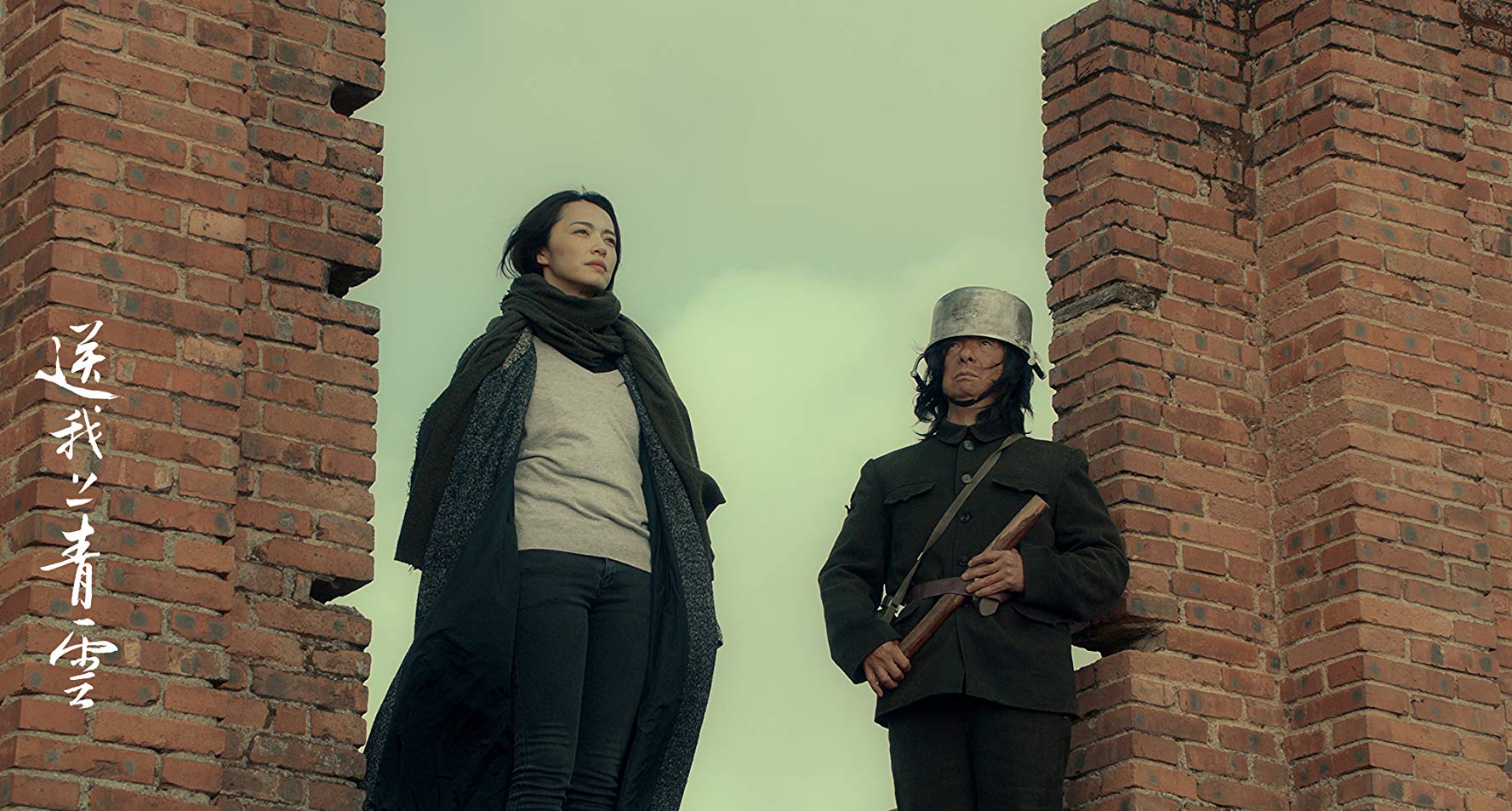‘Send Me to the Clouds’: A woman’s desire to desire

“Feminism” and “women’s cinema” remain misunderstood and stigmatized terms in modern China, which brings us to the film Send Me to the Clouds — is it too feminist, or not feminist enough? At the heart of this debate is a genre striving to take form.

What is a woman’s film? Is feminism against men? How can an independent modern woman express her sexual desires in modern China? These are some of the heated debates stimulated by the recent film Send Me to the Clouds (送我上青云 sòng wǒ shàng qīngyún, 2019), the feature debut of writer and director Téng Cóngcóng 滕丛丛, starring the celebrated actress Yáo Chén 姚晨, who also serves as its executive producer. Now available on DVD in the U.S., the film pushes boundaries, exploring forbidden topics of mortality and the sexual desire of China’s ever-growing population of young female professionals. It even features the first scene of female masturbation on the Chinese screen. The mere acknowledgment of ovaries is groundbreaking.
From her first appearance, alone on a smoky mountain investigating the cause of a wildfire, heroine Sheng Nan (Yao Chen) is a distinct presence. Chinese film and TV usually presents career women as socially savvy, upwardly mobile office ladies in crisp business suits and meticulous make-up. By contrast, Sheng Nan’s black leather jacket, charcoal hoodie, canvas backpack, and combat boots — an outfit she keeps for most of the film — make her more like a soldier in armor, ready for battle.
Competition is second-nature to her. Sheng Nan’s name, 盛男, is a homonym of 胜男 — “win over men!” It embodies parental and social expectation, a name typical to Chinese women born in the 1980s, the first decade of the one-child policy. As the only offspring of the family, girls of this generation are expected to compete with — and surpass — boys in education, civic duties, and the job market, gaining equal wealth, social status, and worldly success. Sheng Nan is a model career woman. Her bedroom wall is plastered with school awards. She has a master’s degree and is working on her Ph.D. She takes pride in her journalist profession and never hesitates to speak truth to power. She dares to fight a madman in the wilderness and to stop a pickpocket in a crowd.
Yet as soon as overachieving young women reach adulthood and enter China’s patriarchal society, they find themselves slammed by gender discrimination and pressured to take the traditionally “feminine” responsibilities of wives and mothers. Sheng Nan is hitting 30 now, and the film never misses an opportunity to remind her (and the audience) that unmarried women over the age of 27 are officially stigmatized as “shèngnǚ” (剩女) — leftover women. This social pressure, orchestrated by the state media and the All-China Women’s Federation, a powerful NGO, is designed to push women into marriage and motherhood in order to supply labor force for the aging nation. Sheng Nan feels lost in this new identity; she resorts to reading biographies because she “fears the unknown and the future, and has no idea how to live this life.”
The tensions between ideal and reality, between “sheng nan” and “sheng nü,” explode when a sudden diagnosis of ovarian cancer forces Sheng Nan to fund her treatment at the price of her dignity and journalistic ideals. She accepts a gig to ghostwrite a memoir for the father of a rich but vulgar businessman, traveling to his secluded mansion on a misty mountain in southwest China. But money is not her only pursuit. Cancer forces her to face mortality so she craves more than ever for the meaning of life. Daringly (especially for a Chinese film), she wishes to find sexual fulfillment before surgery deprives her of estrogen and libido, so she starts a relationship with a young photographer she encounters on her journey to the mountain.
Sheng Nan’s struggles resonate with many viewers while alienating others. There is plenty of praise: on Douban (豆瓣), a Chinese media database, the film has been lauded for going beyond the stereotypes in chick flicks, finally portraying the unglamorous and tough lives of independent urban women. A review in The Paper (澎湃 péngpài) praises Send Me to the Clouds for its “brave and frank depiction of the heroine’s desire” and its advocation of equality for female sexual expression: “Women should be able to express and satisfy their desires just as men.” Another article in the same publication by Zéng Yúlǐ 曾于里 notes the film gives this cause valuable publicity: “It is a pity that sex scenes and masturbation become consumer goods for the media and men, which is exactly one of feminism’s plights.”
But others blame the film for not being feminist enough — some Douban users have pointed out that when Sheng Nan needs help — be it financial, intellectual, or spiritual — she always turns to men. Zeng Yuli notes that as publicity materials mention the possibility of “offending some male viewers,” the film inadvertently “turns the connotation [of feminism] from equal rights to the opposition of two sexes.”
At the heart of these debates is a genre striving to take form. “Feminism” and “women’s cinema” remain misunderstood and stigmatized terms in modern China. Director Teng believes the mission of women’s cinema is to “portray a woman’s psychological journey from a female perspective.” Send Me to the Clouds is a soulful and courageous exploration in this genre, but is not without its flaws. It carries on its feminist mission with visible difficulty and compromises, often retreating from radical new ideas to the comforting and familiar. As Sheng Nan increasingly pursues her sexual desires, the plot deviates more and more from her perspective. This gives the film a lack of focus, diluting the central theme of Sheng Nan’s struggles in favor of the storylines of various secondary male characters and the familiar territory of social satire on materialism and corruption.
But this does not detract from the film’s excellent portrayal of, and challenges to, modern China’s patriarchal society. Sheng Nan has to negotiate her place in a world where wealth and power trample on human dignity. But nevertheless, she persists in her quest for forbidden fulfillment. By doing so, Send Me to the Clouds joins a century’s worth of global women’s cinema in its aspirations and endeavors. Sheng Nan is exercising what film scholar Mary Ann Doane calls the “desire to desire” in her study of classic Hollywood woman’s film. (The “woman’s film” refers to a genre of Hollywood films, most popular in the 1930s and ’40s, that features women-centered narratives, female protagonists, and is designed to appeal to a female audience. This once dismissive label has been revived in recent years by feminist scholars such as Doane. “Women’s cinema” encompasses films made by women.) When she boldly declares to a love interest, “I want to make love with you,” she is insisting that a woman’s sexuality is worthy of respect. By doing so she makes two breakthroughs: firstly in her personal growth as a woman, and secondly in the growth of a new form of femininity in Chinese cinema.





